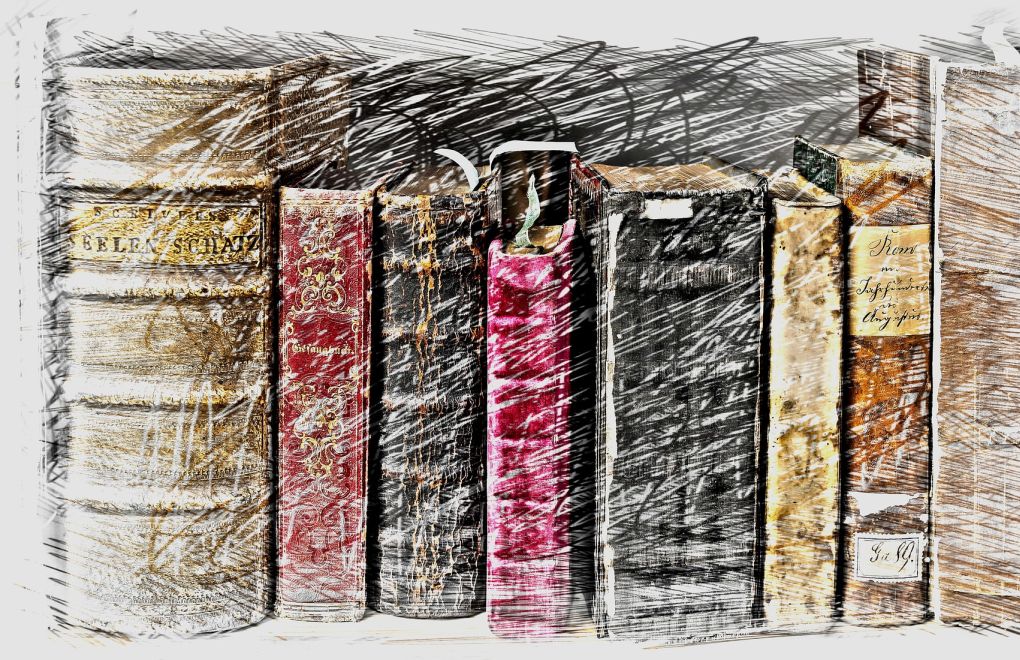* Photo: Pixabay
Click to read the article in Turkish
In our country, there is a ban limited to intercity travel and restriction of the ones aged 65 and older and 20 and younger from going out in public.
Overwhelmed with the heavy burden of an uncertainty in the face of virus outbreak, which is coupled with the boredom of being shut in their homes, albeit for protection, people naturally have more fear and stress.
In these extraordinary days that we go through, staying home brings us as many opportunities as it causes problems. In fact, these opportunities, by staying home, can even contribute to the resolution of some problems that are caused by confinement in a narrow space and routine.
But, let me get this straight: The economic problems arising from these imperative conditions and the attitude of the government is a different matter. In this respect, there is nothing to turn into an opportunity. On the very contrary, problems will obviously escalate for especially the unemployed, pensioners and workers! And it has nothing to do with pessimism.
Those who have to stay home and hesitate to go out can see themselves as confined. If they can empathize about what it is like to serve time in prison, it is a good development. I mean, the tedium of staying home can lead us to think about the meaning of prison sentences given to some people who expressed their beliefs and convictions and their imprisonment for years.
This virus outbreak has even more revealed the value and necessity of thinking about existence, human, politics, science, religion, the state, economy and morality from different perspectives.
As you know, they say that the world will not be the same world after the coronavirus outbreak! It won't be the same world? If yes, then why? Staying home gives us more opportunities to make time to think about these issues. Of course, what I am telling here is for the ones who want to give some thought to it, for the ones who are interested!
As reported by bianet as well, Philosophical Society of Turkey Chair and philosopher Prof. Dr. İoanna Kuçuradi has recommended 10 books and half-an-hour video series to those shut in their homes due to the outbreak, which has also contributed to the embodiment of this article of mine.
These days, at home, I am mostly watching movies and documentaries about World War II. Our generation read a lot about this war long ago. I am refreshing my memory.
I have a recommendation to the ones who paint disaster scenarios with Covid-19 outbreak as the misery and misfortune of the century by exaggerating its negative moral values and especially to the young: On this occasion, they should at least turn their eyes to the last 100 years of history (which, is perhaps the period when the unluckiest generation of all lived).
I wonder, what did a generation who saw both the First World War and the Second World War in their life times suffer? Children, soldiers, adults, the elderly... 20 million people lost their lives in the First War while 60 million people lost their lives in the Second War.
The people of the times when murderous guns, enmities and fascism turned the life into a field of death...
Tragedies caused by torture, bullets, bombs, gas, epidemic diseases, hunger and misery that struck right through each and every life...
There is quite an extensive corpus about the period. I will just recommend a few sources among them.
One of the best books that explain World War II in a documentary style is a three-volume work by US journalist, war correspondent and historian William L. Shirer, namely "The Rise and Fall of the Third Reich."
Some Soviet writers (Andrei Platonov, Ilya Ehrenburg, Vasily Grossman, Mikhail Sholokhov) went to the front as war reporters. Novels on World War II penned by writers and poets such as Alexander Fadeyev, Vasil Bykov, Konstantin Simonov, Alexander Bek are valuable works of the time.
"Life and Fate", the three-volume book of Vasily Grossmann, is an epic work penned by not merely a war correspondent, but by a novelist as well.
Scenes from a documentary that I watched on the 870-day Siege of Leningrad have reminded me of a novel that I read about it years ago. Trucks carrying food, medicine and ammunition to the front along the frozen Ladoga Lake, the bombardment of the convoy by German warplanes, Soviet anti-aircraft... And deaths over deaths due to hunger, cold and bullets!
The Soviets that carried the burden of World War II to a considerable extent and the Red Army that saved its country from Nazi occupation and Europe from the evil of fascism by waging its heroic war...
The book "Haidari Concentration Camp", where Themos Kornaros recounted the resistance of Greek prisoners against the occupation of fascism, and the tragic story of human dignity not giving into prison and force and the struggle against fascism, the enemy of humanity...
Novels on French resistance against Nazi occupation such as Jean Laffitte's "Men of Action"...
The inconceivably tragic stories of Nazi concentration camps...
And "The Banality of Evil", as Hannah Arendt puts it...
Why should we look back at this period?
To be able to understand today, the necessity of looking back at a 100-year history, say the least, is quite obvious.
Why did people die by fighting against fascism? The ones who struggled for economic and social rights, human rights and freedoms... Why did they die? Why were their lives made miserable in prisons, why were they tortured?
It could be asked whether the reason why people died before the recent period is important for today.
It is, of course, important. As one of the people who live in this postmodern era when reality is replaced with perception, things are nullified in the name of relativity, no connection can be established with reality by excluding reason and it has been reflected in the political sphere as irrational and moral erosion, I am of the opinion that trying to know the past has become even more necessary and the practices of the past can be more warning.
Of course, yesterday should not be converted into today and the sorrows of yesterday should not be made to compete with those of today.
But, if we do not have any idea about yesterday, how can we understand today? If we have failed to adequately understand today, how sound and consistent can our future projections be?
OK, let's not be that theoretical and academic.
Today, each one of us has mobile phones, Internet and television (which is already out of date) that have become almost a part of our bodies and advanced communication tools. We live in a world which is different than yesterday, fair and square. But people are still killed! People are still imprisoned and tortured by most governments! There is still fear! There is still an income inequality greater than yesterday! There is an unprecedented environmental destruction and pollution. Regional wars continue. Trillions of dollars are spent on armament, etc.
And what is more important is that the banality of evil, a description used by Arendt for Nazi Germany, prevails in our lives in different forms.
Staying home in the days of corona because we have to is an opportunity to think about thinking, to give some thought to human and society and, at least, to read a couple of books. (HŞ/DB/AÖ/SD)







